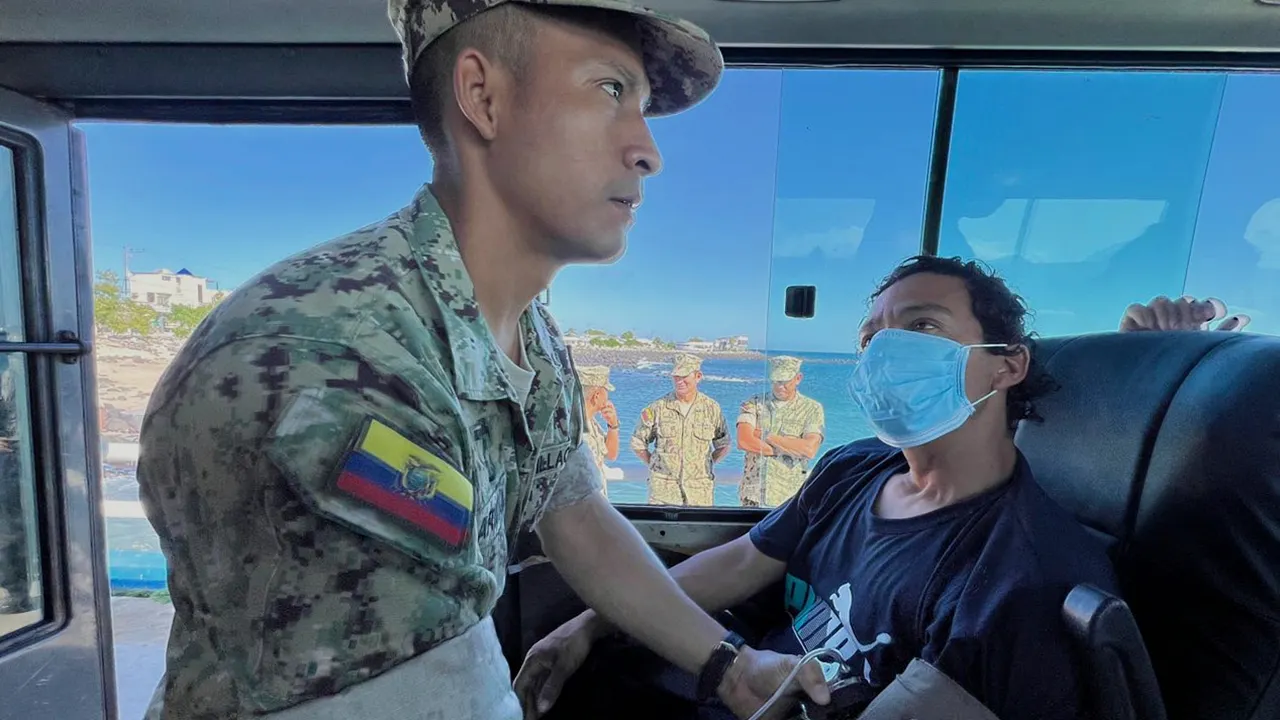A Miraculous Survival: 55 Days Adrift at Sea Ends in Dramatic Rescue
Five fishermen from Peru have been rescued after spending 55 harrowing days adrift in the vast Pacific Ocean. The men, aged 28 to 50, survived on rainwater, raw fish, and sheer determination before a passing merchant ship spotted their crippled vessel 1,200 nautical miles off the Peruvian coast. Their ordeal, which began when their engine failed during a routine fishing trip, highlights both the perils of maritime work and the extraordinary resilience of the human spirit.
The Perilous Journey Begins
On what started as a typical October morning, the crew of the María Elena set out from Paita, Peru, expecting a three-day fishing trip. Within 48 hours, their 15-meter wooden boat suffered catastrophic engine failure, leaving them at the mercy of strong currents that pulled them westward into open ocean. “We had enough fuel and food for five days,” recalled captain Javier Fernández, 47. “When the radio died with the engine, we knew we were in trouble.”
Maritime survival experts note that such scenarios test both physical and mental endurance. “The average person can survive three days without water and three weeks without food,” explained Dr. Helen Cho, a survival medicine specialist at Stanford University. “But psychological factors often determine survival outcomes in prolonged ordeals.”
Innovative Survival Strategies
Facing scorching daytime heat and freezing nights, the crew implemented ingenious survival tactics:
- Collected rainwater using tarpaulins and empty fuel containers
- Constructed makeshift fishing gear from boat materials
- Established a strict rationing system for their limited supplies
- Maintained a rotating watch schedule to spot potential rescuers
Their most critical innovation came when they realized seawater could help preserve their catch. “We’d soak the fish just enough to keep it from rotting in the heat,” explained crew member Luis Mendoza, 32. “The salt made it barely edible, but it kept us alive.”
The Psychology of Survival at Sea
Psychologists studying extreme survival situations identify several factors that contributed to the fishermen’s endurance:
- Group cohesion: The established hierarchy and shared purpose prevented destructive conflicts
- Routine maintenance: Daily tasks provided structure and purpose
- Hope cultivation: The men reportedly took turns sharing stories of past rescues
“What’s remarkable is they maintained collective hope without delusion,” noted Dr. Rachel Wu, a cognitive psychologist specializing in survival scenarios. “This balance between realism and optimism is characteristic of successful survival groups.”
The Dramatic Rescue Operation
On December 14, the Panamanian-flagged cargo vessel Star Horizon spotted the distressed fishermen after noticing unusual reflections from their improvised signaling devices. “We’d been flashing sunlight off a piece of metal for days,” described fisherman Carlos Rivas. “When we saw that ship change course, we started crying.”
The rescue highlights critical maritime safety issues:
| Safety Issue | Relevant Statistic |
|---|---|
| EPIRB (Emergency Beacon) Availability | Only 34% of small fishing vessels in developing nations carry them |
| Average Rescue Time | 72 hours for vessels with functioning distress signals |
Aftermath and Policy Implications
While celebrating their survival, the fishermen now face recovery challenges. All five suffer from severe malnutrition, with two requiring hospitalization for kidney complications caused by dehydration. Their experience has reignited debates about maritime safety regulations in small-scale fishing industries.
“This case demonstrates why we need universal emergency equipment standards,” argued Captain Álvaro Méndez of the International Maritime Rescue Federation. “A $500 beacon could have shortened their ordeal by weeks.”
Meanwhile, the Peruvian government has pledged to review its fishing vessel inspection protocols. Proposed measures include:
- Mandatory emergency communication devices for all commercial vessels
- Enhanced survival training for fishing crews
- Improved coastal monitoring systems
Lessons in Human Resilience
Beyond policy discussions, the fishermen’s story offers profound insights into human capability. Their ability to innovate under pressure—creating water collectors from fuel drums and developing primitive fishing techniques—echoes survival strategies seen in other famous maritime ordeals.
As Captain Fernández reflected while recovering in hospital: “The ocean teaches you what really matters. Every sunrise became our victory, every drop of rain our celebration.” His words capture the essence of survival—not merely enduring, but finding meaning in the struggle.
For readers inspired by this remarkable story of survival, consider supporting maritime safety initiatives through organizations like the International Maritime Rescue Federation. Small contributions can help equip fishing vessels with life-saving technology that might prevent future ordeals.
See more CNN Headline


